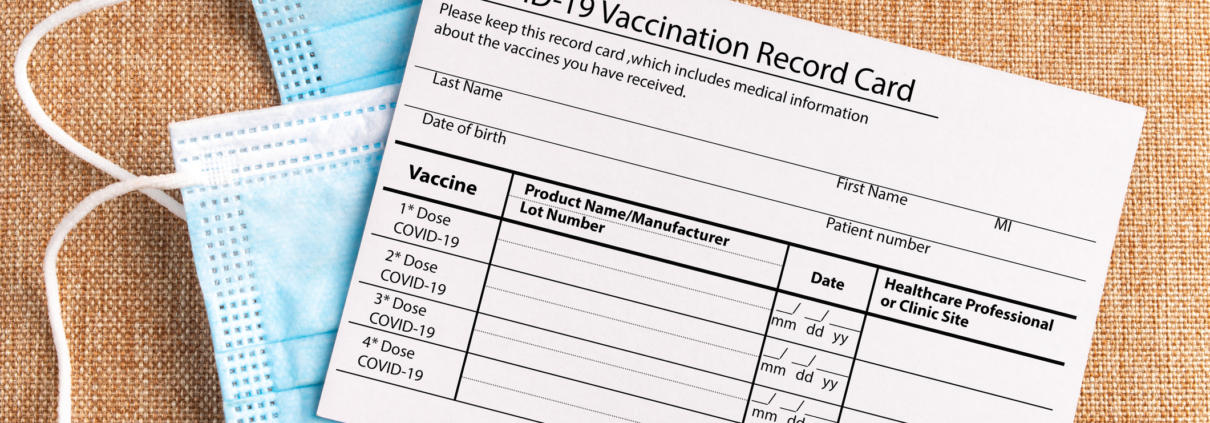Newest pandemic scam: Fake vaccination cards
As vaccination efforts continue to ramp up, scammers have found a new way to keep the COVID-fueled fraud wave going: counterfeit vaccine cards.
Though a billion vaccine shots have been administered throughout the world, not enough of the world’s population has been vaccinated to stop the spread of COVID-19. Many businesses and organizations are now requiring proof of vaccination, leading to the rise of counterfeit vaccine cards. Online advertisements for fake vaccination cards are popping up all over sites like eBay and Etsy, ranging in price from $20 to $60. Demand for fake vaccination cards may rise as more organizations require proof of vaccination to do things like travel on an airplane or attend events.
The rise in sales of fake vaccine cards led 45 states attorneys general to call on Twitter, Shopify, and eBay to stop the sale of false and stolen vaccine cards. Pennsylvania Attorney General Josh Shapiro said his office was seeing a huge market for the fake cards, undermining public health.
In addition to fake vaccination cards, the Federal Trade Commission warns that scammers are doubling their efforts to peddle fake vaccine appointments in order to defraud people out of money and steal their identity. In reality, neither the COVID-19 vaccine nor appointments to be vaccinated have any cost to consumers. Fraudsters are exploiting the unfamiliar territory of booking a vaccine appointment to extract information from unsuspecting victims, such as Social Security numbers and bank account information.
Use the following tips to avoid falling victim to COVID-19 scams and to help stop scammers:
- Don’t pay for the COVID-19 vaccine or to book an appointment. Regardless of your health insurance status, you do not need to pay to book an appointment or to receive the coronavirus vaccine. The only cost associated with the vaccine is administrative, and the organization administering your vaccine will reach out to your health insurance company directly. If you are uninsured, the Health Resources & Services Administration has programs available to cover the cost of a vaccination. If someone is asking you to pay for a vaccine or an appointment, it is most likely a scam.
- Do not share personal health information with people you don’t know. Legitimate vaccination locations will not ask for personal information like your bank account, credit card information, or Social Security number. If you have questions about what is appropriate, check with your local health department or contact your doctor.
- Don’t share fully legible images of your vaccine card on social media. People are understandably excited to share with their friends and family that they have been vaccinated, but sharing your vaccine card on social media opens the door for fraudsters to steal your identity. If you do plan to share your vaccine card online be sure to cross out sensitive information like your full name, birthday, and dates you received the vaccine.
If you or someone you know has been a victim of a stimulus check scam or any other type of fraud, we urge you to file a complaint at Fraud.org via our online complaint form.









